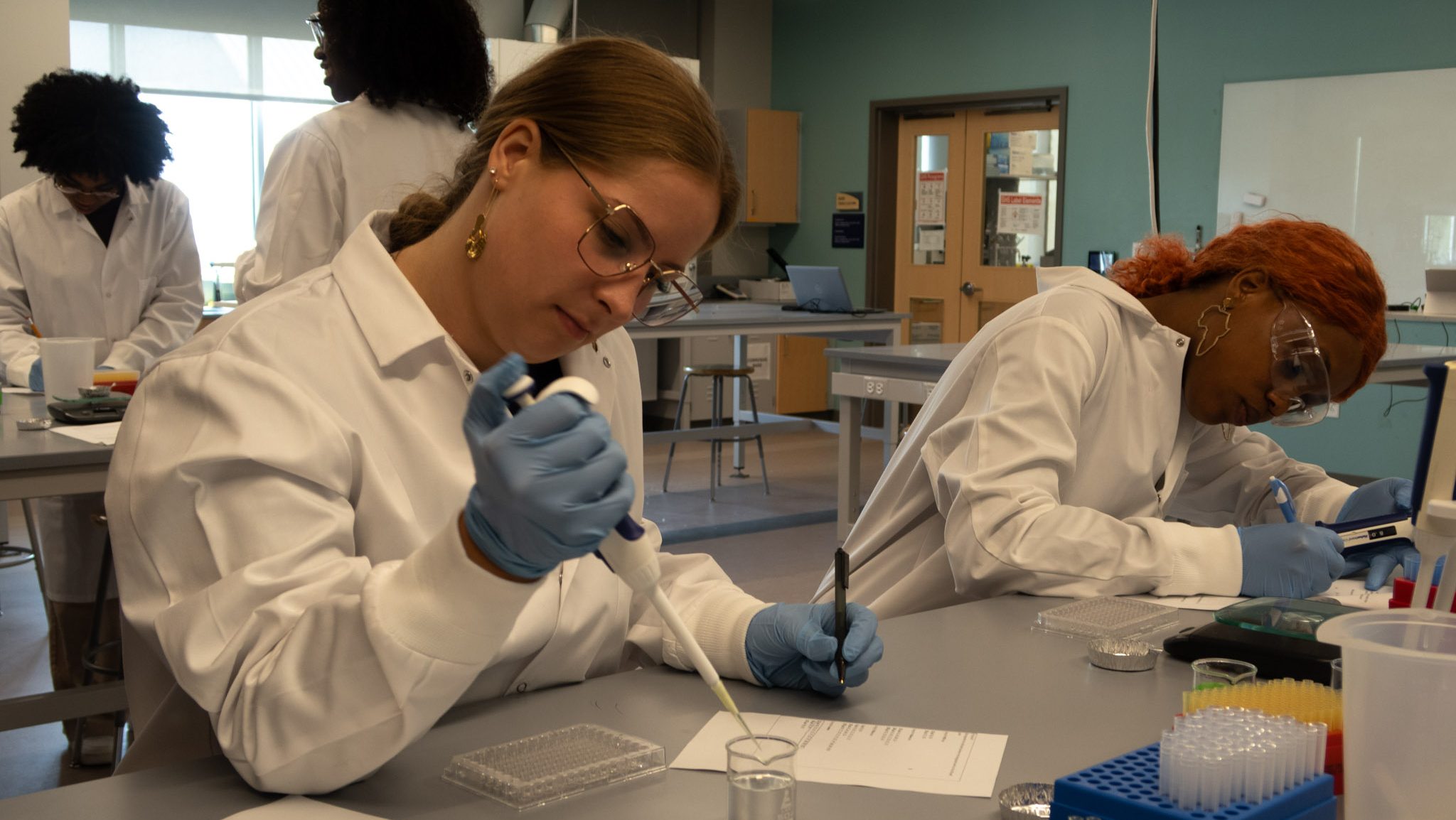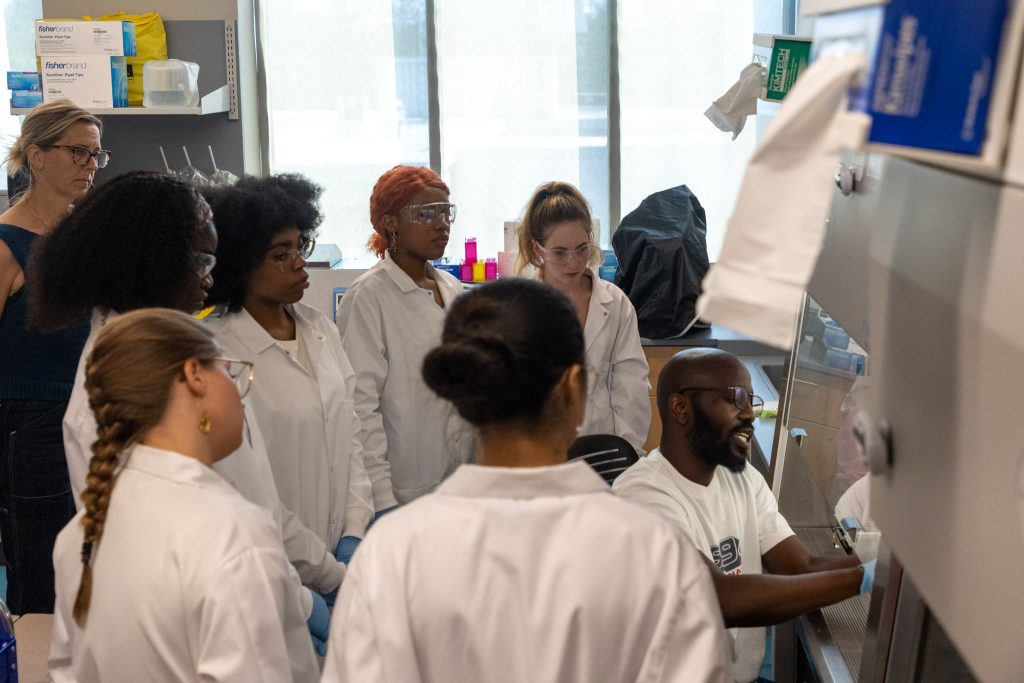
UMaine opens its labs to SMCC students for hands-on biomedical engineering research
Students will present their findings Sept. 24–25 at the Statewide Biomedical Science and Engineering Research Symposium at the University of Southern Maine
Inside the University of Maine’s Tissue Culture Teaching Lab, Southern Maine Community College (SMCC) students leaned over microscopes, carefully pipetting fluorescent dyes onto living cells.
This was the first time that these students had a chance to work in a cell culture environment and see advanced equipment such as plate readers and electron microscopes.
The weeklong short course gave six SMCC students a hands-on entry into biomedical engineering, testing whether new materials are safe for patients while learning aseptic technique and cell culture. It’s part of UMaine’s commitment to real-world, problem-based research that connects community college students to Maine’s growing biomedical community.
“Participating in the SMCC-UMaine course will build on this foundation and help me further develop critical thinking, problem-solving and lab skills that will support my future studies in pharmacy and pharmacology,” said Tatiana Muteba, a health science student at SMCC, during the course.
Over the week, students designed cytotoxicity experiments on four candidate biomaterials. Using MTT assays — MTT is a tetrazolium dye — to track metabolic activity and Live/Dead cell assays with fluorescent imaging, they measured cell viability and growth while practicing precision pipetting, microscopy and sterile technique.

The course was led by SMCC professors Daniel Moore and Erin Adams in partnership with Karissa Tilbury, associate professor of biomedical engineering at UMaine, as a part of a university-led initiative known as Maine-SMART, or Strengthening Maine’s Research Ecosystem and Pathways Through Strategic Capacity Building. Further instructional support was provided by Adeola Fadahunsi, a biomedical science and engineering Ph.D. student and future faculty fellow with the Maine College of Engineering and Computing.
“Students taking this short course have a week to experience what it is like to do the work of scientific research,” said Moore. “It is a great opportunity for a student to see if this is the career path that they would like to pursue, as well as having a chance to learn and observe research techniques that are not available at the community college, such as electron microscopy and cell culture.”
Students will present their findings Sept. 24-25 at the third Statewide Biomedical Science and Engineering Research Symposium at the University of Southern Maine campus, gaining experience in scientific communication and networking.
SMCC plans to offer a Biology Research Experience Short Course annually and open it to students from other community colleges. In fall 2026, UMaine will integrate the biocompatibility module students experienced this summer into its Introduction to Biomedical Engineering course.
The program is part of the Maine-SMART Community College Research Experience Short Course. Maine-SMART is supported through the National Science Foundation’s (NSF) new Established Program to Stimulate Competitive Research (EPSCoR) Collaborations for Optimizing Research Ecosystems Research Infrastructure Improvement Program (E-CORE RII). Additional support comes through the UMaine Institute of Medicine, the Maine College of Engineering and Computing and the University of Maine System’s UMS TRANSFORMS initiative.
Story by Nathan Deveney, research media intern
Contact: Daniel Timmermann, daniel.timmermann@maine.edu
